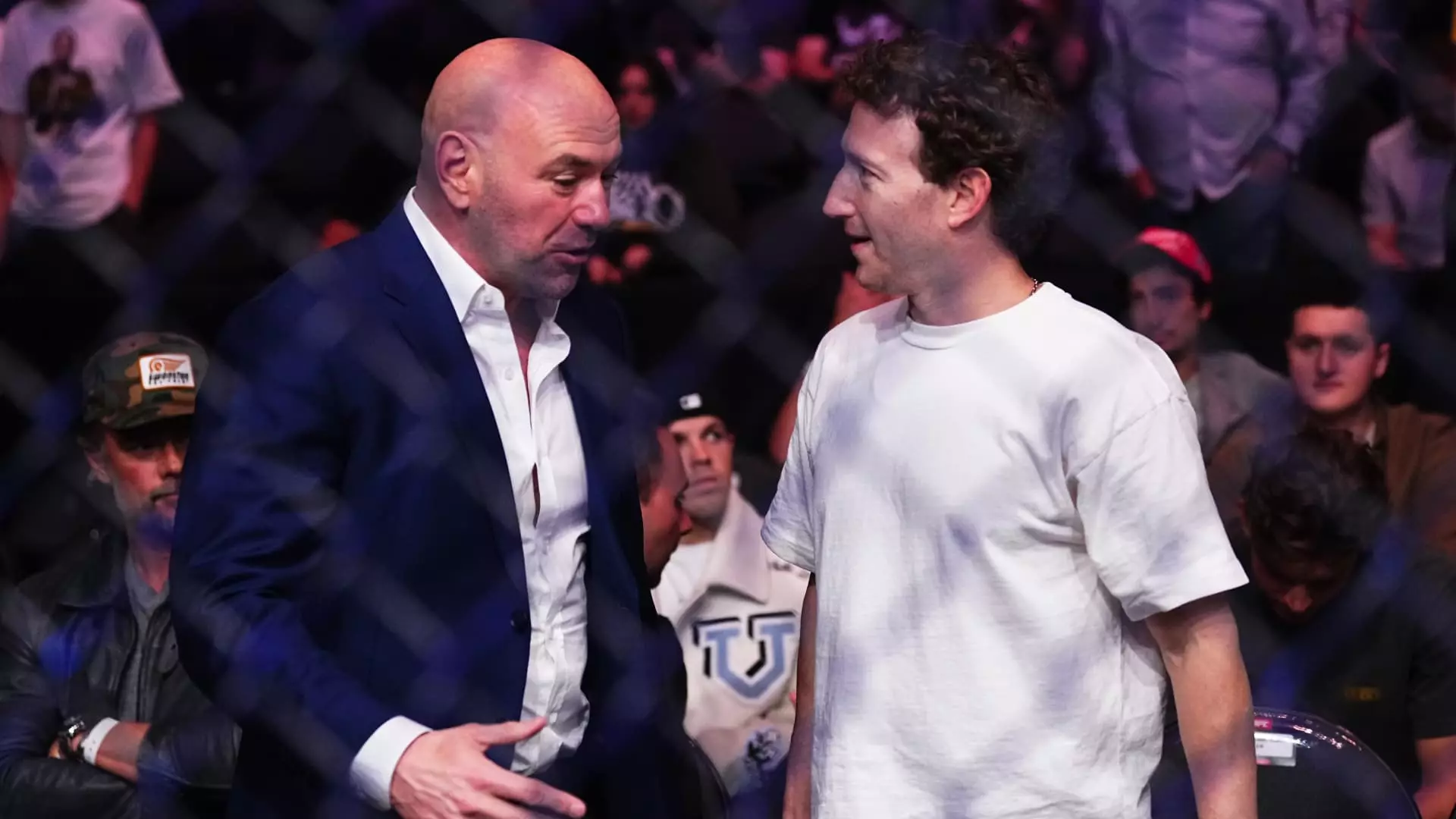In an age where corporate collaborations seem omnipresent, the multimillion-dollar partnership between UFC and Meta signals a particularly disconcerting trend. This alliance, set to elevate the mixed martial arts league’s visibility through various Meta platforms—including Facebook, Instagram, and WhatsApp—reeks of opportunism disguised as innovation. UFC President Dana White exuberantly promises that this partnership will “blow away UFC fans.” Yet, one has to ponder whether this deal represents a genuine enhancement of the UFC experience or merely a superficial glitz intended to pad corporate profits.
The decision to feature Meta branding in the Octagon during crucial pay-per-view and “Fight Night” events is a blatant marketing maneuver that signals a dilution of the sport’s essence. By prioritizing advertising over authenticity, the UFC risks alienating its core audience—die-hard fans who crave the raw competition and visceral intensity of the sport rather than being inundated with corporate bluster. While partnerships can drive growth, they can just as easily detract from the core values that make combat sports compelling.
A Shift in Culture
Mark Zuckerberg’s involvement in this partnership cannot be understated. His assertion that combat sports could inject more “masculine energy” into corporate culture raises significant red flags. This perception not only trivializes the diversity of athletes who participate in MMA but also projects a dated viewpoint that conflates aggression with masculinity. As someone who has entwined his image with overly simplistic notions of virility and risk, Zuckerberg embodies a troubling attitude that is increasingly at odds with contemporary views on masculinity—especially in sports that exemplify discipline and respect alongside competition.
Furthermore, the narrative surrounding Zuckerberg, including his predilection for combat sports, has become entwined with UFC’s strategic direction. By leveraging such a relationship, UFC appears uncritically complicit in sanctioning an ethos that values hyper-aggression and injury. How can an organization that claims to celebrate athleticism also endorse a corporate leader who is cavalier about risks associated with high-intensity activities? This raises fundamental questions about the ethics of their partnership.
The Danger of Corporate Influence
At its core, the partnership appears more focused on Meta’s interests than those of the athletes or fans. TKO’s head of global partnerships, Grant Norris-Jones, proudly declared that Meta would be integrated as the league’s official marketing partner and wearable technology associate. But who is truly benefiting from this? While UFC may gain substantial funding and reach, there is a pronounced danger in allowing a tech giant to wield such influence over a sport that relies on its authenticity and connection to its audience.
Exploring announced initiatives like the upcoming UFC fighter rankings system powered by Meta technology, one must question the potential for biased representations and manipulation in what was once a straightforward metric of performance. With Meta’s penchant for collecting and analyzing data, this new ranking system could be more about driving engagement and less about genuinely evaluating fighters.
Fan Disillusionment
For the most ardent UFC followers, there is bound to be a sense of disillusionment emerging from this deal. The UFC has positioned itself as a gladiatorial arena where skill and strategy trump marketing hype. If the focus shifts from performance metrics to algorithms and marketing maneuvers driven by corporate interests, fans may become disenchanted, as the very fabric of the sport they cherish is altered for profit margins. Will these fans accept social media-generated narratives over the stories of their favorite fighters who have sacrificed blood, sweat, and tears?
In tandem with the looming expiration of the UFC’s exclusive negotiating window with ESPN, the stakes are even higher. As media rights are renegotiated, concerns abound that traditional sports integrity might fall by the wayside in favor of flashy digital partnerships that supercharge corporate profits at the expense of the sport’s foundations.
In a world where profit is often prioritized over ethics, the UFC’s partnership with a tech behemoth like Meta serves as a reminder that the essence of sports may dangerously veer towards commodification. As fans, we must remain vigilant and demanding of transparency, lest we allow our favorite sports to morph into mere marketing platforms.

Leave a Reply